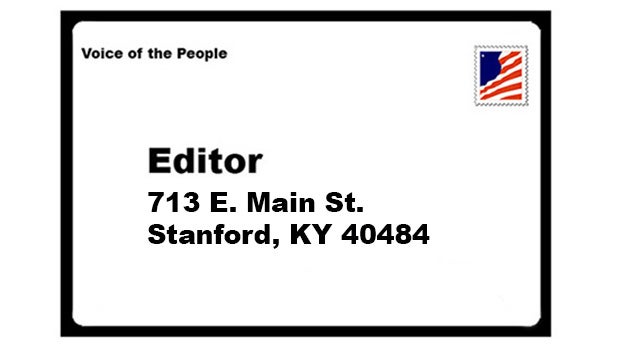Nickel tax is an investment in Lincoln County’s children
Published 6:06 am Thursday, June 15, 2017
Dear Editor,
When my family was led to move to the Hustonville community we were glad to be back in our home county. Knowing our children would attend Hustonville Elementary was a relief to us for a number of reasons. One reason was because of the reputation we heard of the school from friends we trust. We also looked forward to the convenience of a school being steps away from my office and our home.
However, no convenience is more important than investing in our children.
The recallable nickel tax has been met with support, but also a loud opposition. I don’t think I can change anyone’s mind, but maybe for the few that are still undecided this could help you form your own opinion.
What is the tax? The nickel tax is five cents per $100 assessed value on your home or land. This will enable our schools to generate more money through the tax, but more importantly the district will be eligible for matching funds from the state, increasing our bonding potential. A $3.2 million bonding potential turns into $21.1 million with this tax. The state’s matching amount would make up 10.7 million of this figure.
Superintendent Michael Rowe took time to clarify many questions concerning the Nickel Tax through town hall meets and this article in the IJ: https://www.theinteriorjournal.com/2017/04/20/straightforward-answers-to-common-questions-on-nickel-tax/.
Why is the tax needed? There are discussions that this may be the last year the state makes these funds available. If that happens, how will we afford to maintain our schools without eventually increasing taxes? It is estimated that Waynesburg Elementary’s renovation needs a total of $3.4 million and McKinney Elementary’s renovation needs a total of $2.4 million. That is nearly $6 million dollars in renovations needed in two buildings alone. A new school is estimated to cost between $10 to 13 million dollars and gives the benefit of a more comfortable setting and advanced resources to help our children receive the education they deserve.
I grew up in waynesburg and I am truly grateful for the people that invested in me there. However, it was a reality, then and now, that for every area that was improved in the school, two or three other concerns surfaced. We might have built a new library when I was growing up, but our bathroom facilities were inadequate. In recent years, I have had the joy of serving the wonderful staff of McKinney Elementary as a local pastor. That facility is not the facility the children of McKinney, Geneva, Turnersville or South Fork deserve.
As for the community, some have feared that as a local school closes, the community around it dies. Surprisingly, some have referenced the Broughtontown community as an example. Not to be rude, but I had no clue so many people had such a love for Broughtontown. Actually, I hadn’t heard anyone mention this community for years till this tax came up.
Some reference the closing of Kings Mountain. I can assure you this community has not died following the school’s closure. The facility is still used for community efforts, sports and the like. People continue to interact with their neighbors, local businesses are still open, and people are still arguing that the old school is an ideal location for a centralized school (which it is). This community continues because it is located on Hwy 27 and not Hwy 1778.
Local communities are dying because our rural community is changing. Keeping our schools open for a sense of community that no longer exists is not going to revive our community, it is going to punish our children. Keeping Waynesburg Elementary open in 2020 will not change the fact that our community decided community events like Pioneer Days were no longer important in the early 2000s.
The cost of the tax is minimal. A bond (typically of 20 years) will be received by this plan. However, without this plan it would take 45 years to build two new schools, while simultaneously making crucial repairs and praying that a disaster doesn’t set us further back. Doing things the right way costs money and our children are worth it. In 45 years, I will have grandchildren and possibly great grandchildren. I would rather take care of an issue now when we have the means to resolve it, rather than put it off on my offspring. It is our responsibility to teach them how to make wise decisions and invest in things that matter. Education matters.
The personal cost is lined out well by Superintendent Michael Rowe in the link I provided – 50 percent of Lincoln County will pay less than $45 dollars in additional taxes. View it as $3.75 each month that will go to our kids. I know very few people that would not spend $4 dollars once a month for a quick snack at a gas station. How often do we spend $45 dollars on a special meal or looking for items to barter and trade on the swap shop?
I end this extended thought with this; the most costly thing about this nickel tax is our pride. I am 26 years old and still find myself making comments about being from waynesburg and joking with people that we are the best. Our local schools have instilled in us a sense of pride and that isn’t necessarily a bad thing. However, I suggest to you that we invest our pride in something greater – our children. I don’t care if they are from Crab Orchard or Eubank, Stanford or Ottenheim, Moreland or Hubble, we should have pride in what we come together to provide for the education of our children in Lincoln County.
Andrew McGinnis
Hustonville, Ky


